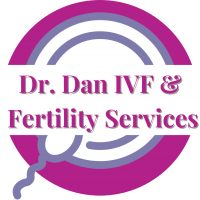Men and women who are unable to conceive a child naturally may utilize fertility drugs as a means of achieving pregnancy. Fertility medication works by triggering and supporting hormones that facilitate ovulation and the production of eggs within the ovaries.
Fertility doctors often prescribe these medications, which can be taken orally or via injection, for women who have ovulatory disorders such as polycystic ovary syndrome ( PCOS ).
Fertility drugs can also be taken by those who have problems with sperm development such as the myotonic muscular dystrophy
This article will explore the definition and examples of fertility drugs.
Defining what fertility drugs are
The definition of fertility drugs can vary from one medication to the other. Fertility drugs have different functions, which is why these medications are broken down into subcategories.
There are fertility drugs for women who are unable to ovulate. There are also fertility drugs for women whose partners have low sperm cell counts or abnormal sperm cells.
There are also fertility drugs that can be taken by either men or women depending on their particular conditions. They work by stimulating the production of hormones involved in reproduction. These include estrogen, progesterone, luteinizing hormone ( LH ), and follicle-stimulating hormone ( FSH ). They are often called gonadotropins.
The different types of fertility drugs for women include Clomiphene citrate which is the primary drug used to treat women who have PCOS. Women with PCOS do not ovulate, but clomiphene citrate stimulates the production of hormones that trigger the release of eggs from the ovaries.
Another type of fertility drug is Gonadotropins which contain a combination of FSH and LH that work to induce ovulation in women who have PCOS or other abnormalities with their egg production cycle.
There are also fertility drugs for men which include injections of human chorionic gonadotropin ( HCG ). They work to increase sperm counts by stimulating the development of more sperm in the testicles.

Why fertility drugs are popular among people who struggle with fertility
There are several reasons why fertility drugs are popular among people who struggle with fertility.
One major reason is that fertility drugs are considered to be a conservative measure when compared to other fertility treatments such as IVF and surrogacy.
Couples who use fertility drugs may only need one or two rounds in order to successfully conceive a baby. Another reason is that these medications are relatively affordable when compared to the cost of alternative treatments.
Another reason is that fertility drugs are minimally invasive in terms of side effects when compared to other types of medications.
There is no universal success rate among women who take these medications. It depends on the condition, age, and health of the individual woman.
Another reason is that fertility medication can often be taken orally whereas alternative treatments may require surgery or injections. This is especially the case with men who are unable to produce adequate amounts of sperm.
Another fantastic reason is that fertility medication can be taken orally. This can often make it more convenient and accessible for some women. However, women should always consult with their health care provider before taking any type of fertility drug to ensure they are capable of using these medications without harming their body or unborn baby.
As you can see there are several reasons why people prefer fertility drugs to other infertility treatments. These medications are taken orally and can be highly effective in resolving fertility issues in some women.
Read more about NPP Steroid
How fertility drugs work inside the human body
There are different ways that fertility drugs work inside the human body.
Fertility drugs stimulate the production of hormones that are important for reproductive processes to take place. These include LH, FSH, estrogen, and progesterone.
These medications can either be taken orally or injected depending on the type you use. Women who struggle with ovulating often take oral medication whereas men who have low sperm cell counts may need to take injections.
Fertility drugs are often used in conjunction with other fertility treatments such as IUI and IVF.
Another way fertility drugs work is by stimulating ovulation in women who have PCOS or other conditions that prevent them from ovulating on their own. These can often be taken orally and are considered to be a conservative fertility treatment.
Fertility drugs that contain a combination of FSH and LH may also need to be injected into the body because they work by inducing ovulation.
Fertility drugs work in different ways, but they are all classified as clinically proven medications that can help people who struggle with fertility issues such as those that result from PCOS or some other reproductive abnormality. They are minimally invasive and taken orally which makes them more accessible for some patients.
Fertility drugs also play a key role in fertility treatment by helping to stimulate ovulation, increasing sperm production, and resolving other reproductive issues related to hormone production.

The positive effects of using fertility drugs
Each fertility drug has its own respective list of positive effects. However, there are some positive effects that are present with all fertility drugs.
One major positive effect is that fertility medications are known for being highly effective in resolving many kinds of reproductive problems related to ovulation, sperm production, and other hormonal processes inside the human body.
Another great benefit associated with fertility medication is that it doesn’t require surgery or other invasive procedures like IVF does. This can be a huge relief for some people who don’t want to deal with the risks and expenses associated with more invasive fertility treatments.
There is also the benefit of taking the medication orally which can be highly convenient for many women since IVF and other procedures can require multiple visits.
Finally, there is the benefit of using these medications in conjunction with other fertility treatments such as IUI or IVF.
The potential side effects of abusing fertility drugs
There are also some negative effects that can be associated with the use of fertility drugs.
Some people just don’t respond to fertility medication and may need other types of infertility treatments such as IVF or IUI.
Other side effects can include ovarian hyperstimulation (which causes Cysts), abdominal pain, and headaches.
In some cases, fertility drugs can also affect mood which can have a negative impact on personal relationships.
People who suffer from Polycystic Ovarian Syndrome, pituitary tumors, or other reproductive disorders should avoid using fertility drugs to resolve their infertility issues since they may exacerbate the condition instead of resolving it.
There are many things women need to consider before taking these medications such as their age and their current health status. Some women just don’t respond well to fertility drugs which can make them a bad option for some people.
Read more about Dostinex
The proper dosage instructions for fertility drugs
Fertility drugs should only be taken under the direction of a medical professional such as a doctor or nurse practitioner. It is important for people to carefully follow their doctors’ instructions when taking medication.
Some fertility drugs require multiple doses while others don’t require any at all. For example, some single-dose medications can be taken orally while other medications may need to be injected into the body.
There are also some fertility drugs that may need to be taken with other fertility medications too. Most doctors will consider the health of the patient and their family history before prescribing these types of medications. There is really no predicting how well a woman’s body will respond to fertility medication since every woman is different with different tolerance levels for hormones and other medications.
When in doubt, make sure to ask your doctor if you can try taking another lower dose or another form of fertility treatment instead. Doctors will always consider their patient’s well-being before giving them prescriptions for any type of medication.
Can fertility drugs be stacked for better results?
Fertility drugs can be stacked in some cases. For example, a woman with a low ovarian reserve may need to take fertility medication along with IUI or IVF in order to have a baby.
It is possible for women who can’t use fertility drugs to try using them along with other types of infertility treatments such as IUI and IVF. However, doctors will always want to consider the health of their patients before making any prescribing decisions.

The legal status of fertility drugs
The legal status of fertility drugs is still up for debate.
Some people consider fertility drugs to be supplements since they are not pharmaceutical-grade products. These particular types of infertility treatments do not require FDA approval either which can raise some questions about their potential safety and effectiveness.
However, other people consider fertility medication to be a dietary supplement that can help increase their omega-3 intake or their intake of certain vitamins.
It is important for people to carefully read the labels of fertility drugs before they use them to make sure that they are taking the right type and dosage. Women should always consult their doctor first before trying out any new types or brands of fertility medications too.
Today, there are many fertility clinics that offer infertility treatments to patients who need them. Many of these clinics offer other services besides fertility medication to help improve the chances of their patients getting pregnant.
People who are interested in starting a family should always make sure they do their research first before committing to any type of treatment program. There are plenty of options available to couples that want to have children, but not every treatment works for every person.
It is always best practice to speak with a doctor before starting on any type of infertility treatment including taking fertility drugs. It is important to get all the facts and information about these types of medications before trying them out or making any decisions that may impact your health and well-being.
Read more about Ganirelix Acetate
Examples of fertility drugs
There are many fertility drugs that can help improve a woman’s chances of getting pregnant.
Some of the most commonly prescribed fertility medications include:
- Clomiphene Citrate (brand names include Clomid, Serophene): This medication is recommended to women who ovulate regularly but do not produce eggs on a regular basis. The hormone-balancing effects of this drug can help women with polycystic ovary syndrome (PCOS) improve their insulin sensitivity, making it easier for them to get pregnant.
- Letrozole (brand names include Femara, Aromasin): This fertility drug is recommended for women who do not ovulate regularly. Using this type of medication can help stimulate the development of eggs since it works by mimicking estrogen in a woman’s body which is what causes her to produce more eggs during her monthly cycle.
- Gonadotropins: This medication is recommended for women with hypogonadotropic hypogonadism who have not responded to other types of fertility treatments such as clomiphene citrate or letrozole.
- Follicle-stimulating hormone (brand name: FSH) and Luteinizing hormone (brand name: LH): These hormones are the primary drugs used in menotropin therapy which can help women who have an ovulation disorder improve their chances of getting pregnant due to the way these hormones work.
- Human chorionic gonadotropin (brand names include: Ovidrel, Pregnyl): This medication is recommended for women who have a luteal phase defect because it can stimulate the ovaries and help them grow eggs that are mature enough to be released by the body.
- This type of fertility medication is especially beneficial for women who have early menopause and cannot conceive due to a lack of egg development during their menstrual cycle.
Frequently Asked Questions about fertility drugs
Are fertility drugs used for women who are unable to conceive naturally?
There are many fertility drugs out there that can help women with different types of infertility get pregnant. Fertility medications come in all shapes and sizes but the most common ones include clomiphene citrate, letrozole, gonadotropins, follicle-stimulating hormone (FSH), and luteinizing hormone (LH).
Are fertility drugs safe for women who are thinking of getting pregnant?
While most types of fertility medications can help improve a woman’s chances of conceiving, it is best to get the facts and check with your doctor before trying out any new type of medication. There are plenty of different brands and types of fertility drugs available and not all of them are safe for every person to use.
Can women take fertility medication together with other medications?
Yes, it is possible for women to take certain types of fertility drugs at the same time as they are taking different types of medications including antibiotics and blood pressure medication. This depends on what type of drug it is and what other medications you are taking. Always talk to your doctor first before trying any new types of medications.
Summary and conclusion
Fertility drugs can be very helpful when it comes to getting pregnant, but like any other type of medication, you should always talk to your doctor first before trying out these types of drugs or taking them in conjunction with other medications. Always get the facts and do your research before making any decisions that could impact your overall health and wellness.

